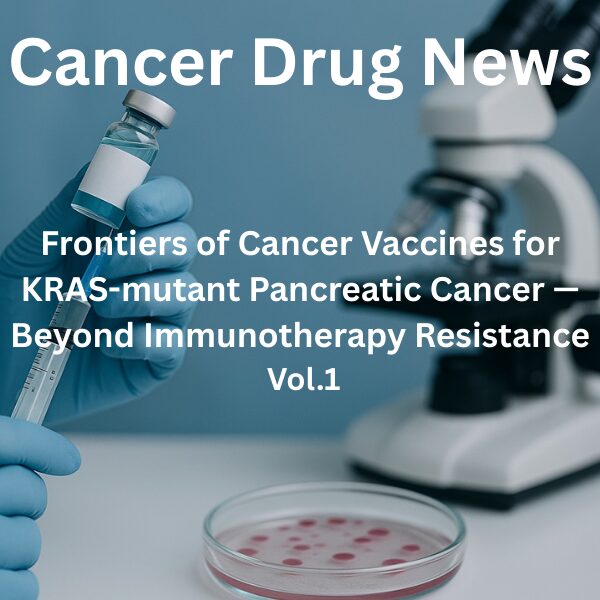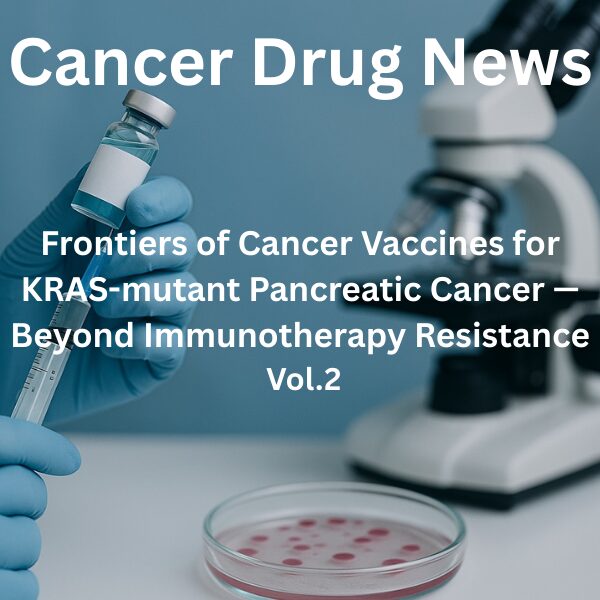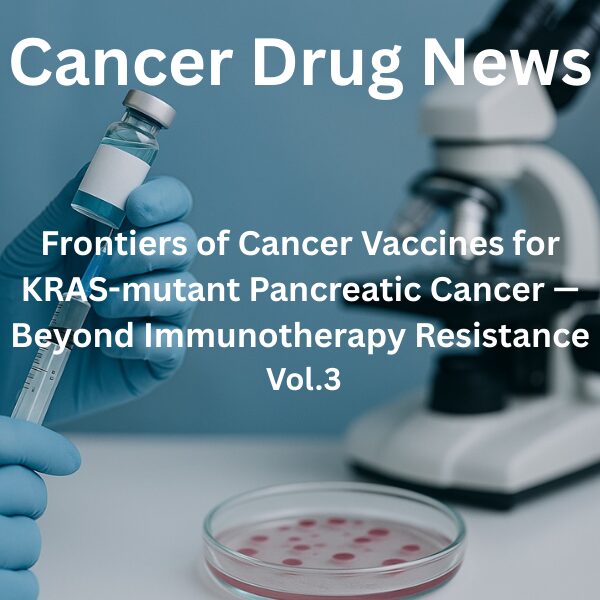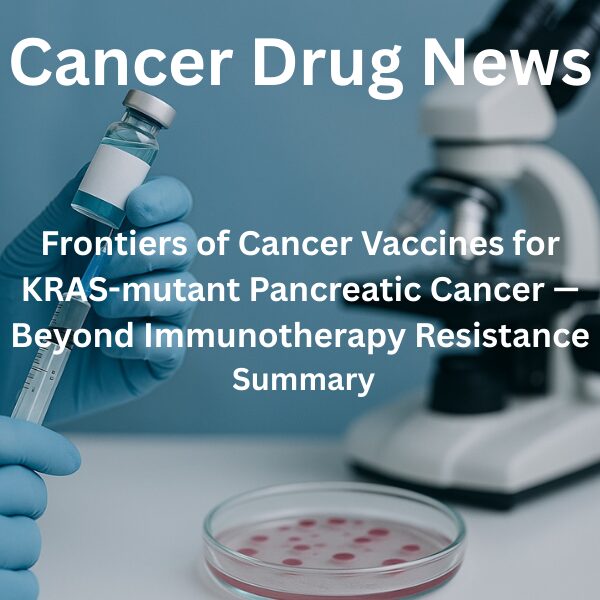Trilogy Subtitles+Series Summary
- Part 1: Biological Background of KRAS-mutant PDAC and Theoretical Basis of Cancer Vaccines
- Part 2: Clinical Advances in RNA Vaccines and the AMPLIFY-201 Trial
- Part 3: CAR-T Integration and Next-generation Vaccine Design
Introduction
Pancreatic ductal adenocarcinoma (PDAC) remains one of the deadliest malignancies worldwide, with a dismal 5-year survival rate of only around 10%. Traditional therapies such as chemotherapy, radiotherapy, and targeted agents have achieved limited progress. A defining feature of PDAC is the near-universal presence of KRAS mutations, long considered “undruggable.”
Recent advances in immunotherapy, particularly cancer vaccines, are now transforming KRAS from an untouchable driver into a feasible immunological target. This summary article synthesizes insights from Parts 1–3 and adds broader reflections on future directions and comparisons with other cancer immunotherapies.
Biological challenges of KRAS-mutant PDAC
Over 93% of PDAC tumors harbor KRAS mutations, with G12D, G12V, and G12R being the most prevalent. These variants show distinct clinical behaviors: G12D correlates with poorer prognosis, while G12R associates with relatively better outcomes.
ICIs have shown response rates below 5% in PDAC, reflecting the tumor’s low mutational burden and immunosuppressive microenvironment. Yet KRAS mutations, being essential for tumor survival and clonally stable, qualify as ideal public neoantigens.
Personalized RNA vaccine approaches
The landmark 2023 Nature trial demonstrated that personalized RNA vaccines (autogene cevumeran) could elicit robust neoantigen-specific T cell responses in resected PDAC patients. Half of the participants mounted strong immunity, correlating with prolonged recurrence-free survival. Follow-up data showed persistence of these vaccine-expanded clones, highlighting the potential for long-lasting immune memory in PDAC.
Public vaccine strategy: AMPLIFY-201
The ELI-002 amphiphile vaccine targeting KRAS G12D/R achieved promising results in the AMPLIFY-201 trial. Among 25 PDAC and CRC patients, 84% developed mKRAS-specific T cell responses and significant biomarker clearance. Patients with above-threshold T cell responses experienced not reached median RFS and OS. Importantly, antigen spreading was observed in 67% of cases, extending immune recognition beyond the vaccine’s intended targets.
CAR-T synergy with vaccines
CAR-T cells face major hurdles in solid tumors due to antigen heterogeneity and immunosuppressive TME. Preclinical studies demonstrated that vaccine boosting reactivates CAR-T cells, inducing interferon-γ–mediated antigen spreading and broadening anti-tumor responses. This approach converts CAR-T from a “single-target weapon” into a “broad-spectrum immune amplifier.”
Future outlook
Key challenges
- Safety: Managing risks such as cytokine release syndrome and autoimmunity in vaccine-CAR-T combinations.
- Patient selection: Incorporating ctDNA, HLA typing, TMB, and microenvironment profiling for precision immunotherapy.
- Integration of universal and personalized vaccines: Balancing broad applicability with patient-specific targeting.
- Scalability: Standardizing mRNA vaccine platforms to enable rapid and cost-effective deployment worldwide.
Comparison with other cancers
- Melanoma: High response rates to ICIs, with vaccines explored to enhance durability.
- Non-small cell lung cancer: KRAS G12C inhibitors show benefit, but combination with immunotherapy is needed to overcome resistance.
- Renal and hepatocellular carcinoma: Early trials of vaccine plus ICIs have shown encouraging results, supporting broader applicability.
Conclusion
KRAS-mutant PDAC, long deemed immunotherapy-resistant, is now emerging as a promising candidate for vaccine-based interventions. Personalized RNA vaccines embody precision medicine, public KRAS vaccines offer broad applicability, and CAR-T integration represents a transformative frontier in solid tumor therapy.
If ongoing trials confirm these benefits, the history of pancreatic cancer treatment may soon witness a paradigm shift.



References (Common for the 4-part KRAS Cancer Vaccine Series)
- Nature, 2023. RNA neoantigen vaccines prime long-lived CD8+ T cells in pancreatic cancer.
- Nature, 2023. Personalized RNA neoantigen vaccines stimulate T cells in pancreatic cancer.
- Nature Medicine, 2023. Lymph-node-targeted, mKRAS-specific amphiphile vaccine in pancreatic and colorectal cancer: the phase 1 AMPLIFY-201 trial.
- Nature Medicine, 2025. Lymph node-targeted, mKRAS-specific amphiphile vaccine in pancreatic and colorectal cancer: final results of the phase 1 AMPLIFY-201 trial.
- Nature, 2023. Vaccine-boosted CAR T crosstalk with host immunity to reject tumors with antigen heterogeneity.
- Cancer Cell, 2020. Distinct clinical outcomes and biological features of specific KRAS mutants in human pancreatic cancer.
- Clinical Cancer Research, 2021. Distinct Molecular and Clinical Features of Specific Variants of KRAS Codon 12 in Pancreatic Adenocarcinoma.
- Nature, 2023. A neoantigen vaccine generates antitumour immunity in renal cell carcinoma.
- Lancet Oncology, 2023. Personalized neoantigen vaccine and pembrolizumab in advanced hepatocellular carcinoma: a phase 1/2 trial.
This article was edited by the Morningglorysciences team.









Comments